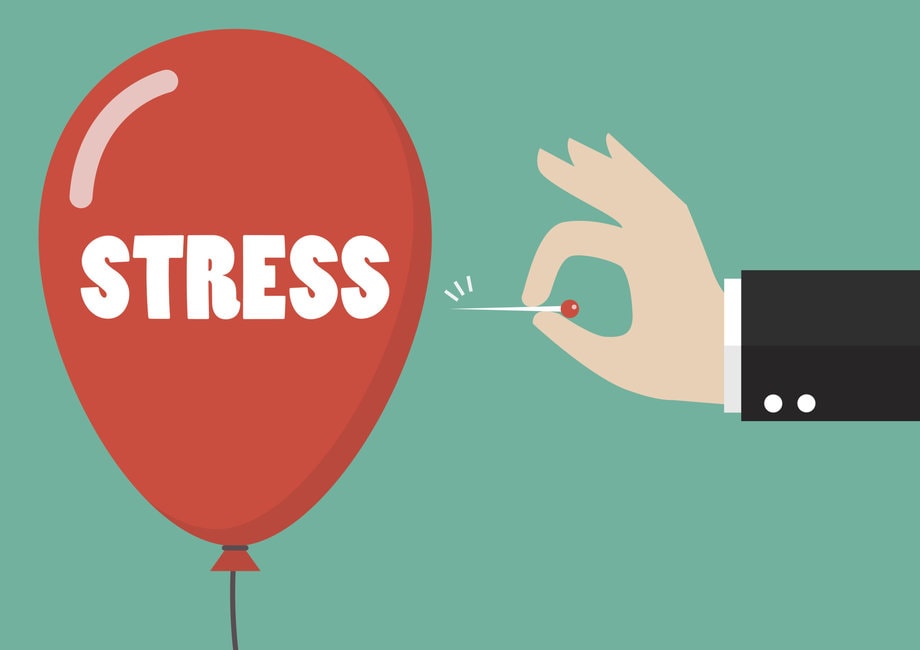How To Manage Stress To Control Hypertension?

Research has shown a significant association between stress and hypertension, a chronic medical condition characterized by high blood pressure. Stressful situations trigger physiological responses that can lead to elevated blood pressure levels, potentially contributing to the development and progression of hypertension.
Therefore, managing stress effectively is crucial in controlling hypertension and reducing associated health risks. This article aims to provide evidence-based strategies for stress management to help individuals with hypertension maintain optimal blood pressure levels.
The proposed techniques include:
- Relaxation techniques
- Regular physical activity
- A healthy diet
- Adequate sleep
- Building a strong support system
- Practicing time management
- Seeking professional help when necessary.
By adopting these strategies, individuals may be able to reduce stress levels and subsequently minimize the impact of stress on blood pressure, thereby contributing to better control of hypertension.
Key Takeaways
- Efficient time management is important for controlling hypertension and managing stress.
- Stress reduction techniques such as meditation, deep breathing, and physical activity can help manage hypertension.
- Seeking professional help through counseling and cognitive-behavioral therapy can provide guidance and support in managing stress and hypertension.
- Learning coping mechanisms and implementing stress management strategies can help reduce hypertension and manage stress effectively.
Understand the Connection Between Stress and Hypertension
The relationship between stress and hypertension has been widely studied, revealing a significant association between chronic stress and the development and progression of hypertension.
Stress management techniques play a crucial role in controlling hypertension. Chronic stress can lead to elevated blood pressure levels, which can ultimately result in hypertension. When a person experiences stress, their body releases stress hormones that temporarily increase blood pressure. However, chronic stress can cause the body to remain in a heightened state, leading to sustained high blood pressure.
Stress reduction techniques such as meditation, deep breathing exercises, and regular physical activity can help lower blood pressure and manage stress. By incorporating these techniques into daily life, individuals can effectively control hypertension and reduce the risk of associated complications.
Understanding the impact of stress on blood pressure is fundamental in managing hypertension.
Practice Relaxation Techniques
Practicing relaxation techniques is an effective approach to mitigating the effects of stress on blood pressure.
When individuals are stressed, their bodies release stress hormones that can cause increased heart rate and constricted blood vessels, leading to elevated blood pressure levels.
By engaging in relaxation techniques, individuals can activate the body’s natural relaxation response, counteracting the effects of stress on the cardiovascular system.
Here are three relaxation techniques that can help manage stress and lower blood pressure:
- Deep breathing: Deep, slow breaths can activate the body’s relaxation response and reduce stress levels.
- Progressive muscle relaxation: This technique involves tensing and then releasing different muscle groups, promoting relaxation and reducing muscle tension.
- Meditation: Mindfulness meditation can help individuals focus their attention on the present moment, reducing stress and promoting a sense of calm.
By incorporating these relaxation techniques into their daily routine, individuals can effectively manage stress and control hypertension.
Engage in Regular Physical Activity
Engaging in regular physical activity is a beneficial approach to maintaining optimal blood pressure levels.
Physical exercise benefits individuals with hypertension as it helps to reduce stress levels and promote overall well-being. Regular exercise has been shown to decrease systolic and diastolic blood pressure in hypertensive individuals, contributing to better cardiovascular health.
This is because physical activity increases the production of nitric oxide, a compound that promotes vasodilation and improves blood flow. Additionally, engaging in exercise can also serve as a stress relief activity, allowing individuals to release tension and anxiety.
This is particularly important as stress is a known factor in the development and exacerbation of hypertension. Therefore, incorporating regular physical activity into one’s routine can be an effective strategy for managing stress and controlling hypertension.
Maintain a Healthy Diet
To maintain optimal blood pressure levels, it is important to adhere to a healthy diet. Consuming a diet rich in fruits, vegetables, whole grains, and lean proteins can significantly reduce the risk of developing hypertension.
Including healthy recipes in one’s daily meal plan can ensure a balanced intake of essential nutrients. Additionally, limiting the consumption of sodium and processed foods is crucial in managing blood pressure.
Nutritional supplements, such as omega-3 fatty acids and potassium, have also been shown to have a positive effect on blood pressure. It is advisable to consult a healthcare professional before incorporating any supplements into the diet.
In conclusion, maintaining a healthy diet by following nutritious recipes and considering nutritional supplements can play a significant role in managing stress-induced hypertension.
Get Adequate Sleep
This paragraph discusses the link between sleep deprivation, stress, and hypertension.
Sleep deprivation has been shown to increase stress levels, which in turn can lead to hypertension.
Therefore, it is important to prioritize getting adequate sleep to help control hypertension.
Strategies for improving sleep quality and quantity include:
- Establishing a regular sleep schedule
- Creating a relaxing sleep environment
- Practicing relaxation techniques before bed.
The link between sleep deprivation, stress, and hypertension
Sleep deprivation, stress, and hypertension are intricately connected, forming a tangled web that ensnares individuals in a vicious cycle of unrest and physiological imbalance. The link between sleep deprivation and stress is well-established, as inadequate sleep disrupts the body’s stress response system, leading to heightened levels of stress hormones. This, in turn, can contribute to the development and exacerbation of hypertension.
To further emphasize the impact of this connection, consider the following:
- Fatigue: Sleep deprivation impairs cognitive function and increases fatigue, making it more challenging to effectively manage stress.
- Emotional instability: Lack of sleep can lead to emotional instability, making individuals more susceptible to stressors that can trigger hypertension.
- Impaired immune function: Sleep deprivation weakens the immune system, leaving individuals more vulnerable to the detrimental effects of chronic stress on blood pressure regulation.
To break free from this cycle, adopting good sleep hygiene practices and implementing effective stress management techniques are crucial steps in managing hypertension.
Strategies for improving sleep quality and quantity
Implementing effective strategies for improving sleep quality and quantity can significantly enhance overall well-being and contribute to a healthier lifestyle. When it comes to improving sleep patterns, establishing a consistent bedtime routine is crucial. This routine should involve creating a calm and relaxing environment, avoiding stimulating activities before bed, and ensuring a comfortable sleeping environment.
Additionally, practicing good sleep hygiene by maintaining a regular sleep schedule, limiting daytime napping, and avoiding caffeine and heavy meals close to bedtime can also improve sleep quality.
Engaging in relaxation techniques such as deep breathing exercises, meditation, or listening to soothing music before bed can also help promote better sleep.
By implementing these strategies, individuals can establish healthy sleep patterns, which in turn can help manage stress and ultimately control hypertension.
Build a Strong Support System
Developing a robust network of friends, family, and healthcare professionals can significantly contribute to effectively managing stress and subsequently controlling hypertension.
Support groups can provide a safe space for individuals to share their experiences, gain emotional support, and learn coping strategies from others facing similar challenges. These groups often offer a sense of belonging and validation, reducing feelings of isolation and promoting overall well-being.
Additionally, therapy options such as cognitive-behavioral therapy (CBT) can help individuals identify and change negative thought patterns and behaviors that contribute to stress. CBT can also provide individuals with practical tools and techniques to manage stress more effectively.
Healthcare professionals, including doctors and nurses, can offer guidance and support in managing stress and hypertension through regular check-ups, medication management, and lifestyle modifications.
A strong support system not only provides emotional support but also serves as a valuable resource for information and assistance in navigating the challenges of managing stress and hypertension.
Practice Time Management
Efficiently managing one’s time can foster a sense of productivity and accomplishment, allowing individuals to prioritize tasks and responsibilities, which can ultimately lead to a greater sense of control and a reduction in feelings of overwhelm.
Time management techniques can be valuable tools in managing stress and controlling hypertension. By implementing strategies such as creating a schedule, setting goals, and breaking tasks into smaller, manageable chunks, individuals can optimize their productivity and minimize stress levels.
Additionally, incorporating stress reduction techniques into one’s daily routine, such as meditation, deep breathing exercises, and regular physical activity, can further enhance time management skills and promote overall well-being.
By effectively managing time and reducing stress, individuals can take proactive steps towards controlling hypertension and improving their overall health.
Seek Professional Help if Needed
If individuals find themselves struggling to cope with the challenges of time management and stress reduction, it may be beneficial to seek assistance from a qualified professional in order to receive guidance and support in navigating these difficulties.
Professional counseling can provide individuals with the necessary tools and techniques to effectively manage stress and ultimately control hypertension. Stress management techniques, such as cognitive-behavioral therapy, can help individuals identify and modify negative thought patterns and behaviors that contribute to stress.
Additionally, professionals can provide personalized strategies to improve time management skills, allowing individuals to better prioritize tasks and reduce feelings of overwhelm.
Seeking professional help not only offers a safe and supportive environment to explore and address stress-related issues, but it also provides individuals with the opportunity to learn valuable coping mechanisms to better manage stress and ultimately reduce hypertension.
Frequently Asked Questions
What are the common symptoms of hypertension?
Common symptoms of hypertension include headaches, dizziness, blurred vision, shortness of breath, and chest pain. Early detection through regular blood pressure monitoring is crucial for appropriate lifestyle modifications and effective management of hypertension.
Can stress management techniques really help control hypertension?
The effectiveness of meditation in controlling hypertension and the impact of exercise on stress and hypertension control have been studied. These techniques have shown potential in managing stress and therefore may help in controlling hypertension.
Is it necessary to take medication along with stress management techniques for hypertension control?
Medication alternatives and natural remedies can be used in conjunction with stress management techniques for hypertension control. However, the necessity of taking medication alongside these techniques depends on the severity of the condition and should be determined by a healthcare professional.
Are there any specific relaxation techniques that are more effective in managing stress and hypertension?
Deep breathing and meditation have been found to be effective relaxation techniques for managing stress and hypertension. Studies have shown that these techniques can help reduce blood pressure and improve overall cardiovascular health.
How long does it usually take to see the effects of stress management on hypertension control?
The effects of stress management on hypertension control can vary, but it usually takes a significant amount of time to see noticeable improvements. Patience and consistency in implementing stress management techniques are important for long-term results.









